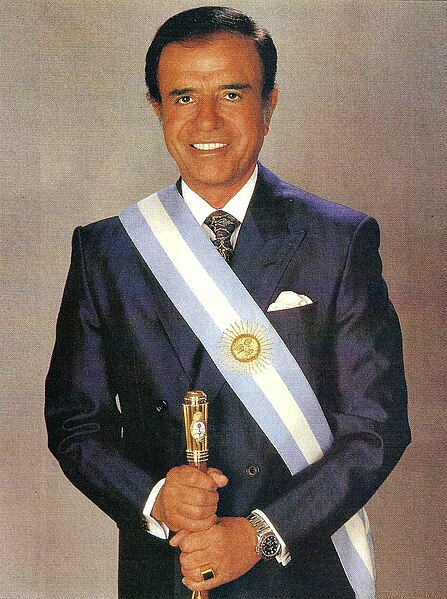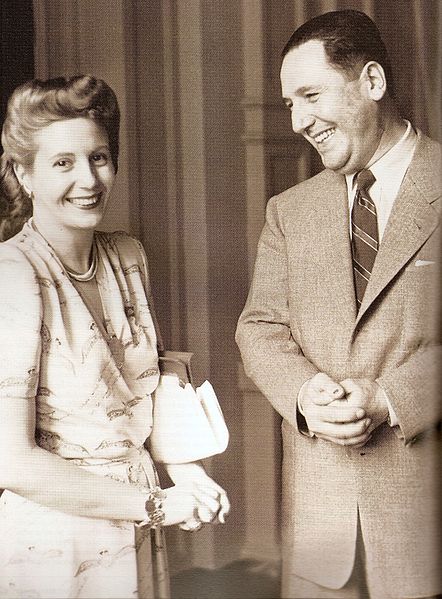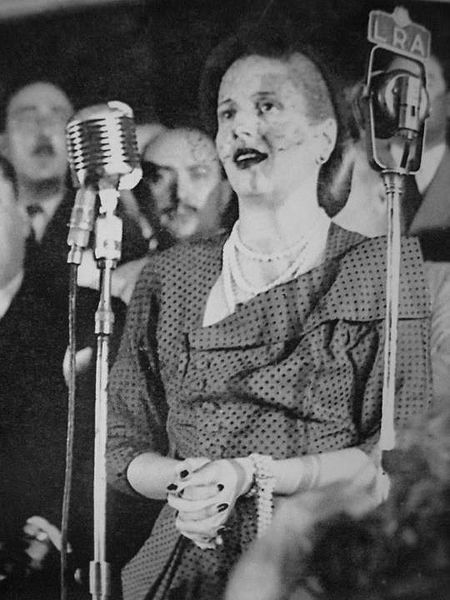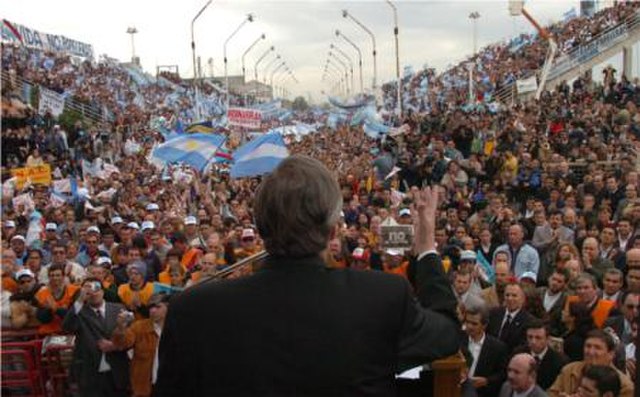Carlos Saúl Menem was an Argentine lawyer and politician who served as the president of Argentina from 1989 to 1999. Ideologically, he identified as a Peronist and supported economically liberal policies. He led Argentina as president during the 1990s and implemented a free market liberalization. He served as President of the Justicialist Party for thirteen years, and his political approach became known as Menemism.
Official portrait, 1995
Carlos Menem (right) meets the elected president Héctor Cámpora in 1973.
Carlos Menem and Zine El Abidine Ben Ali (1997)
Menem, in the 1999 campaign
Peronism, also known as justicialism, is an Argentine ideology and movement based on the ideas and legacy of Argentine ruler Juan Perón (1895–1974). It has been an influential movement in 20th- and 21st-century Argentine politics. Since 1946, Peronists have won 10 out of the 14 presidential elections in which they have been allowed to run. Peronism is defined through its three flags, which are: “Economic Independence”, “Social Justice” and “Political Sovereignty”.
Argentine president Juan Perón and first lady Eva Perón
Juan Perón is the central symbol in the Justicialist Party.
Eva Perón claims the female vote in 1947
Néstor Kirchner addressing a multitude at Gualeguaychú








